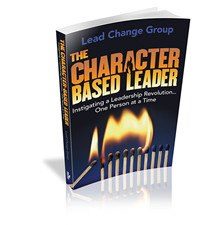[Tweet “With Great Power, Comes Great Responsibility”]
Does this quote resonate with you as loudly as it resonates with me? I think it is hard-wired into my DNA. I believe it so much that sometimes I’ve assumed it was self-evident to everyone around me. So, if someone had a title and they were not using their power to serve others I judged them harshly. (Not something I am proud of, but it’s true.)
Eventually, I had a powerful head smacking moment (visualizing the old V8 ads) and realized:
- That perhaps they have never been on the receiving end of that kind of leadership.
- They may not have a clear vision of what that kind of leadership looks like, how rewarding it can be, or how much greater the results can be.
- They might be a new leader that desires to lead well, and simply does not know what they don’t know.
- They might be experiencing a very difficult time personally…
Bottom line – my judgments have never helped anyone catch a more effective and more powerful vision, let alone inspired them to make a change.
And if I’m going to judge, I need to start with the times in my life where I got so distracted by what I was trying to accomplish that I did not live those words as beautifully in the real world as I did in my vision.
And yet ~ I cling to the vision, knowing that whenever I have taken the time to discover, nurture, unleash, and serve others, everything inside of me dances! This clip at the bottom of this post is from the movie We Were Soldiers. It is one very clear example of what that vision looks like to me.
Do you believe that With Great Power, Comes Great Responsibility? If so, will you share how you are doing some of these things?
- Reminding your team that unity is important.
- Reminding them that their differences are not a weakness but a strength.
- Leading by example.
- Coming along side of them, caring for them, and serving them.
- Modeling that you will always be the first one on the field and the last one off.
- Making sure that everyone comes home together.
~ Additional articles about this topic~
- Are you a candle or a beacon?
- Together you stand, divided you fall.
- Protect your leadership from 5 temptations with a sandwich.
iStock Photo/WingClips Video





The US Army continually reassesses leadership to maintain a cutting edge in current times. Leaders must establish and clearly communicate their vision. They must ensure there is shared understanding of this vision within the organization. So when I hear the phrase “With Great Power, Comes Great Responsibility,” I tend to believe that leaders who wield power effectively, do so by gaining commitment rather than compliance. And to that end, a clearly articulated vision is vital to the success of the organization.
As an Army Officer, I believe that great responsibility is best undertaken with a heart of a servant, as was mentioned in the blog’s author. A failure to communicate my vision will result in a failure to gain commitment. I will gain compliance by my “power,” or authority. But I believe that commitment will have a longer lasting and more engrained impact on the organization.
How do I answer the posed questions?
1) Reminding your team that unity is important? I attempt to clearly communicate this principle in my casual conversation with Soldiers, as well as share my expectation of unity with my organization’s officers and non-commissioned officers.
2) Reminding them that their differences are not a weakness but a strength? I sometimes like to “walk through” a tactical exercise that highlights the importance of each specialty that Soldiers can contribute to the fight.
3) Leading by example? I simply ensure that I am not above everyone else. Even the senior leaders must conduct training too, regardless of how miniscule it may seem.
4) Coming along side of them, caring for them, and serving them? I like to ask Soldiers questions about themselves and their families. My old First Sergeant taught me this lesson well. Taking a genuine interest in Soldiers makes them feel like they are valued.
5) Modeling that you will always be the first one on the field and the last one off? This is harder to do because it does not always manifest itself as easily. But one way is that Officers should learn to be the last one through the “chow line” so he can talk to his or her Soldiers as they receive their food. I imagine the same effect in the corporate world can be gained by greeting employees as they come through the door in the morning.
6) Making sure that everyone comes home together? Training. Leaders must ensure that Soldiers, or employees, are trained to act as a team and rely on that training. Unfortunately, coming home together during war is not always achievable. But leaders must do everything in their power to build that trust in their Soldiers that he or she will do everything within their power to bring everyone home alive.
That is what great responsibility means to me.
David,
Thank you so much! …First for your service to our country, second for your dedication to your people, and third for taking the time to share from your heart! I especially appreciated your comments on #4 and #5. It is in the little things, where actions speak louder than words.
Iam inspired by you and your leadership!
Chery
I do believe it. I also think we often take for granted the power (and luxury) we have.
Unfortunately, it is easy to look and see more powerful people and think they are the ones that have obligations; I should mainly get more power and wealth not be burdened with obligations myself.
I wrote about the idea from an individual perspective (rather than that of an employee) in The Moral Consequences of Your Decisions.
In an organization I think one of the responsibilities is to create a climate where people can take joy in work.